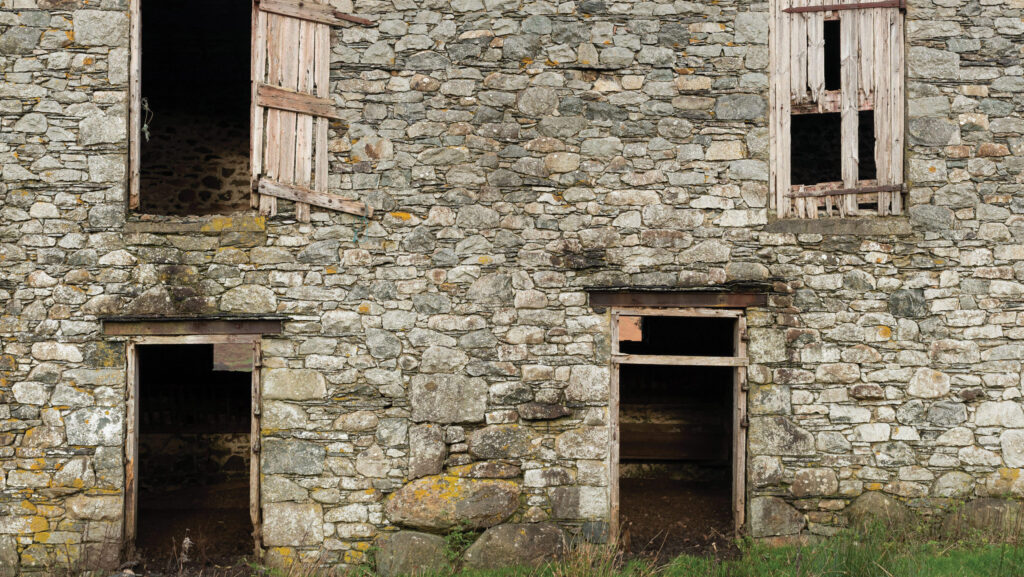Business Clinic: What are my options for historic building?
 © Gillian Pullinger/Alamy Stock Photo
© Gillian Pullinger/Alamy Stock Photo Whether it’s a legal, tax, insurance, management or land issue, Farmers Weekly’s Business Clinic experts can help.
Here, Mark Charter, partner and head of estate management at Carter Jonas, advises on the options for an historic building.
See also: Business Clinic: succession prompts decisions on farmland
Q. On my property in Oxfordshire, I have an historic building, a spa dating back to the 18th century, which is derelict and in need of repairs.
These will run to hundreds of thousands of pounds.
I think it has potential to earn additional income but the investment is significant. What are my options?
A. Although there is no specific law dictating that a landowner must keep historic or listed buildings on their land in a good state of repair, your local planning authority could act if it believes such a property has deteriorated to the extent that it may be at risk.
Therefore, it’s wise to maintain such buildings appropriately.
The cost of renovations or restorations can be off-putting, but there are several avenues that can be explored to make the investment less painful and more beneficial to your wider estate.
In a small number of circumstances, you may find the building is of sufficient historical value to warrant interest from the general public.
Opening the restored building for a small number of days a year could provide an additional income stream.
Tax considerations
If you can prove the building is linked to agricultural operations, you can usually claim inheritance or capital gains tax relief against the asset.
However, if it is not used for agriculture, you may be able to claim a conditional exemption as an alternative tax break.
This is a mechanism for deferring inheritance tax and/or capital gains tax on objects or collections that have national, scientific, historic or artistic pre-eminence.
It can also be claimed in respect of outstanding landscapes and historic buildings.
Under the rules of the scheme, those who are left a building, land, work of art or historical artefact can defer inheritance tax in return for promising to preserve, maintain and repair the asset, as well as allowing public access.
Once the property is sold, a tax bill is incurred and inheritance tax becomes payable, calculated on the disposal price.
It must also be noted that agricultural property relief and business property relief will not be available at that point.
There is a way to reduce this amount, however, and that’s by providing evidence of any improvements that were made to the property after it was granted the exemption.
This total amount is then omitted from the final bill.
A more common approach would be to restore the building and either align it with an existing diversification or establish a new one.
Options for building use
If, for instance, you have an events business, could the building be used as a venue? Could you offer it as a space to rent out, or if you have a shoot, could it have a use in enhancing the experience?
An historic building could potentially be turned into a holiday let or rental property – if the upfront costs are off-putting, alternative schemes are available.
Historic and characterful structures quite often demand premium rents.
There is precedence for The Landmark Trust to fund a restoration project in return for a long-term lease on the property.
The trust would also take responsibility for onward maintenance during its tenancy, which is funded through letting the property.
As soon as the term of the lease expires, the property is returned to you, restored and well maintained.
Check up on grants
Whatever route you decide to take, it is worth researching the grants available and applying for as many as possible to help offset the cost of restoring the property.
For instance, the Historic Houses Foundation awards grants for the repair and conservation of rural historic buildings and structures in England and Wales.
There may also be opportunities to work with local charitable organisations and preservation bodies, where any building may help achieve their stated charitable objects.
There are many local organisations that will support historic building conservation.
Do your due diligence and make sure you consult experts who know the area well.
Involve your accountant right from the beginning to make sure everything is documented and the tax implications have been explored.
Do you have a question for the panel?
Outline your legal, tax, finance, insurance or farm management question in no more than 350 words and Farmers Weekly will put it to a member of the panel. Please give as much information as possible.
Email your question to FW-Businessclinic@markallengroup.com using the subject line “Business Clinic”.
